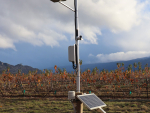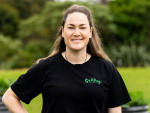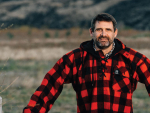One of the country’s largest kiwifruit growers has reported a 44% increase in production this season.
Listed company Seeka has told the New Zealand Stock Exchange that it has packed 43 million trays of class 1 kiwifruit this harvest season, compared to 29.8m trays last year.
Seeka chief executive Michael Franks says the increase is a pleasing recovery after two very challenging years impacted by weather events.
“The additional volume was efficiently processed by our facilities and well within our capability,” he says.
“Availability of labour and automation improvements both contributed to a smooth and effective packing season. Shipping is proceeding well. The impact of the Zespri shipment infested by rodents is not expected to materially impact earnings.”
Franks points out that while the increased trays packed is a signal of a return to profitability, it is too early to accurately predict the financial outcome and to be able to provide reliable financial guidance.
Seeka expects to update the market later in the year.
Franks says the company remains focused on maximising operational earnings, debt reduction, and achieving financial leverage targets.
He thanked all growers, suppliers, contractors and staff for their efforts in concluding the 2024 New Zealand kiwifruit harvest.


















